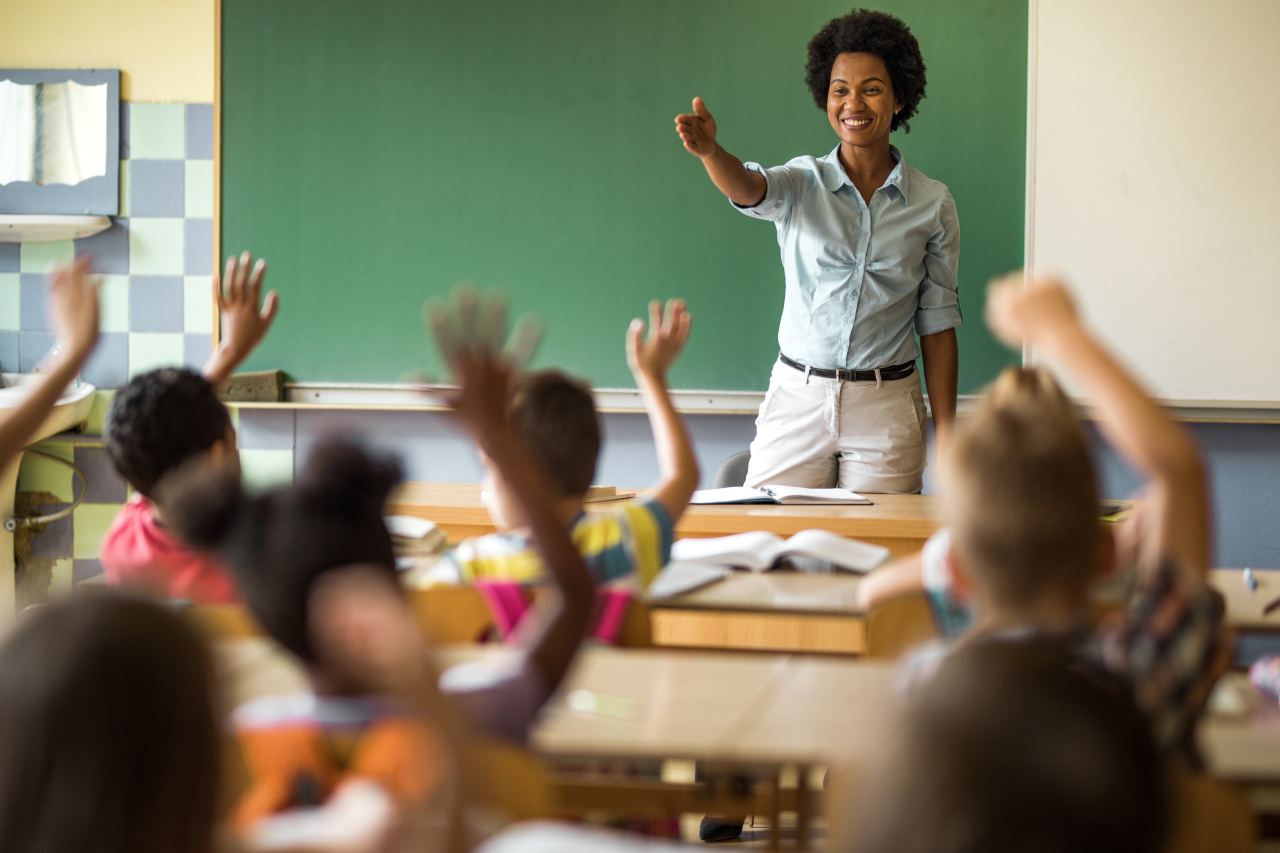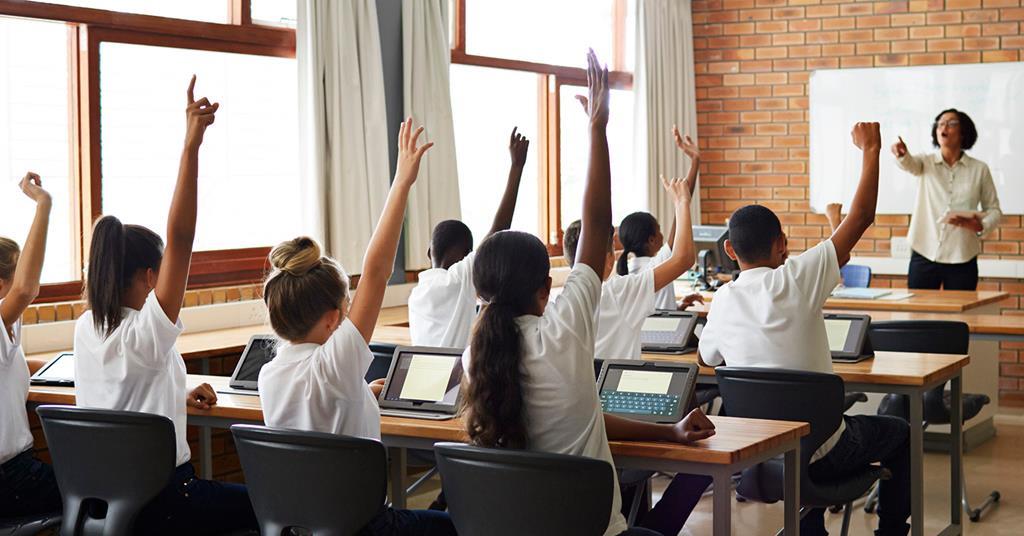Expert Primary Science Tuition Singapore for Understanding Complex Concepts
Expert Primary Science Tuition Singapore for Understanding Complex Concepts
Blog Article
Discover the Crucial Advantages of Recognizing Main Science for Young Students
The significance of key science education and learning for young learners extends much beyond mere knowledge procurement; it offers as a fundamental pillar in establishing necessary abilities such as important reasoning, analytic, and imagination. Engaging with scientific principles through inquiry-based and interactive activities not only cultivates interest but likewise lays the groundwork for resistant, positive learners.
Enhancing Vital Believing Abilities
Fostering important assuming abilities in young students is crucial for their cognitive development and future academic success. Crucial reasoning allows children to assess details, examine evidence, and make informed choices, which are important skills in today's information-rich society. By participating in scientific query, young learners can improve these abilities as they check out principles through monitoring, reasoning, and testing.
In key science education, teachers can facilitate important reasoning by encouraging pupils to ask concerns, create hypotheses, and carry out experiments. This hands-on strategy permits children to exercise problem-solving and develop rational reasoning skills. When students examine the buildings of materials or the principles of motion, they learn to analyze their findings seriously and attract verdicts based on proof.
In addition, discussions and collective jobs can promote vital thinking by offering opportunities for students to express their ideas, challenge assumptions, and consider diverse viewpoints. By creating a supportive atmosphere that values query and representation, educators can nurture crucial believing skills that encourage young students to end up being independent thinkers and lifelong learners. Inevitably, improving these skills lays a durable structure for their future scholastic endeavors and individual growth.
Fostering Inquisitiveness and Expedition

Key scientific research education gives an organized environment where young students can check out different sensations via hands-on experiments and observations. By permitting them to connect with materials and take part in inquiry-based discovering, educators produce possibilities for youngsters to formulate hypotheses, evaluate their concepts, and reason. Such experiences nurture a feeling of marvel and excitement regarding scientific research.

Building Self-confidence in Issue Resolving
Structure self-confidence in problem-solving is a critical component of main scientific research education and learning that equips young students to approach challenges with durability and imagination - primary science tuition Singapore. They create crucial abilities in critical thinking and evaluation when kids are urged to engage with clinical principles via hands-on tasks and inquiry-based discovering. This process not only enhances their understanding of scientific principles yet also cultivates a sense of ownership over their learning
To construct confidence, instructors ought to create a helpful environment where errors are considered as opportunities for growth instead of failures. try this web-site This encourages students to take dangers and check out numerous remedies to troubles. By supplying scaffolding and guidance, teachers can assist pupils navigate intricate tasks, slowly enhancing their independence in analytical scenarios.
Furthermore, collaborative learning experiences, such as team jobs or experiments, can additionally boost students' confidence as they find out to articulate their thoughts and pay attention to others' viewpoints. These communications support social abilities and enhance the concept that problem-solving is usually a cumulative endeavor. Eventually, growing confidence in analytical prepares young students for future scholastic difficulties and equips them with the devices required for lifelong discovering.
Encouraging Imagination and Technology
In the world of main science education and learning, encouraging imagination and technology is essential for cultivating a dynamic knowing environment. By promoting a society where young learners can explore concepts and experiment freely, teachers assist pupils create crucial thinking skills and a passion for exploration. Imagination in scientific research encourages children to ask inquiries, devise theories, and take part in hands-on tasks that boost their creative imagination.
Incorporating flexible projects and inquiry-based knowing into the educational program enables pupils to reveal their special perspectives and services. As an example, when charged with addressing a trouble associated to their environment, pupils can conceptualize several approaches, causing innovative results that display their creativity. This not just grows their understanding of clinical ideas however likewise imparts a feeling of possession over their knowing process.
Additionally, imaginative scientific research education nurtures partnership amongst peers, as students often share concepts and construct on one an additional's understandings - primary science tuition Singapore. This joint spirit promotes not only innovation yet additionally essential social skills. Hence, by focusing on imagination and innovation in main scientific research education, we encourage young students to assume critically, embrace challenges, and picture opportunities, laying a solid structure for long-lasting knowing and expedition
Preparing for Future Discovering Obstacles
Young learners' ability to browse future discovering obstacles rests on a strong structure in main scientific research education. This fundamental understanding equips trainees with critical believing abilities and an organized approach to analytic, vital for taking on intricate concerns in an ever-evolving globe. Main scientific research fosters inquiry-based learning, motivating pupils click to find out more to ask inquiries, check out hypotheses, and take part in hands-on experiments.
As they establish these abilities, students come to be skilled at evaluating information, acknowledging patterns, and attracting informed verdicts. Such proficiencies are vital not only in clinical fields but additionally in engineering, modern technology, and math (STEM), where interdisciplinary knowledge is significantly essential.
Moreover, main science education and learning grows a feeling of curiosity and strength in young learners, enabling them to watch challenges as possibilities for development. As they come across and conquer barriers in their scientific explorations, they develop self-confidence in their ability to innovate and adjust.
Ultimately, a solid structure in primary science not just prepares young learners for academic searches but also equips them with the tools needed for lifelong learning and adaptability in a quickly changing worldwide landscape. By purchasing key scientific research education, we are buying the future possibility of our learners.
Verdict
Understanding primary science is important for young students, as it promotes crucial reasoning, interest, and creative thinking. Involving with scientific principles with hands-on experiments enhances problem-solving capabilities and builds durability. This fundamental expertise not only furnishes students to analyze information and acknowledge patterns but also supports an inquiry-based state of mind. Ultimately, the benefits of primary scientific research education prepare youngsters for future academic quests and instill long-lasting discovering practices vital for flourishing in an ever-evolving globe.
The significance of imp source key science education and learning for young students expands far beyond plain understanding procurement; it offers as a fundamental pillar in creating necessary skills such as important reasoning, analytical, and imagination. By creating an encouraging environment that values query and reflection, instructors can support important believing skills that equip young students to come to be independent thinkers and lifelong learners. Therefore, by focusing on creativity and advancement in primary science education and learning, we encourage young learners to think seriously, welcome obstacles, and picture opportunities, laying a solid foundation for lifelong discovering and exploration.
Young learners' capability to browse future knowing obstacles pivots on a strong structure in key scientific research education and learning.Understanding key scientific research is essential for young learners, as it fosters vital thinking, interest, and creative thinking.
Report this page